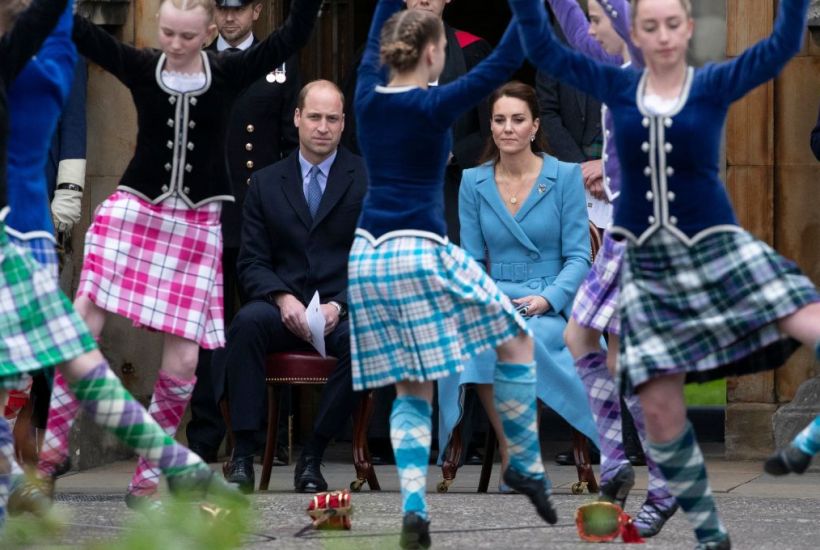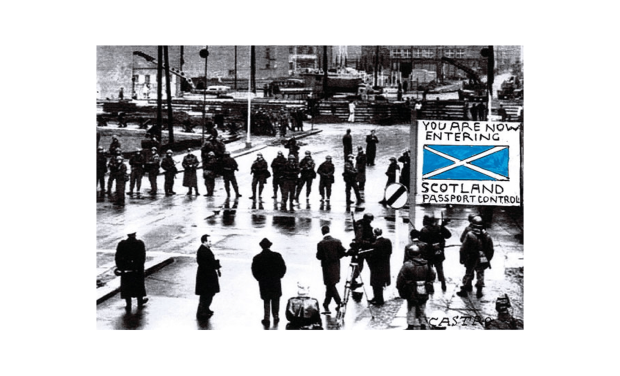Can the Duke and Duchess of Cambridge save the Union? Officials at Buckingham Palace are reported to be drawing up plans for the Royal couple to spend more time north of the border.
If so, it’s likely that Alex Salmond won’t be amused: the former first minister accused Prince William of ‘poor judgement’ for meeting Gordon Brown on a recent visit. Salmond,
Already a subscriber? Log in
Subscribe for just $2 a week
Try a month of The Spectator Australia absolutely free and without commitment. Not only that but – if you choose to continue – you’ll pay just $2 a week for your first year.
- Unlimited access to spectator.com.au and app
- The weekly edition on the Spectator Australia app
- Spectator podcasts and newsletters
- Full access to spectator.co.uk
Or




















Comments
Don't miss out
Join the conversation with other Spectator Australia readers. Subscribe to leave a comment.
SUBSCRIBEAlready a subscriber? Log in